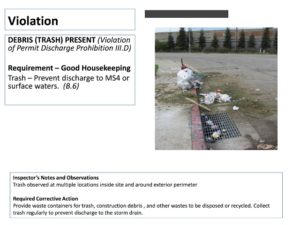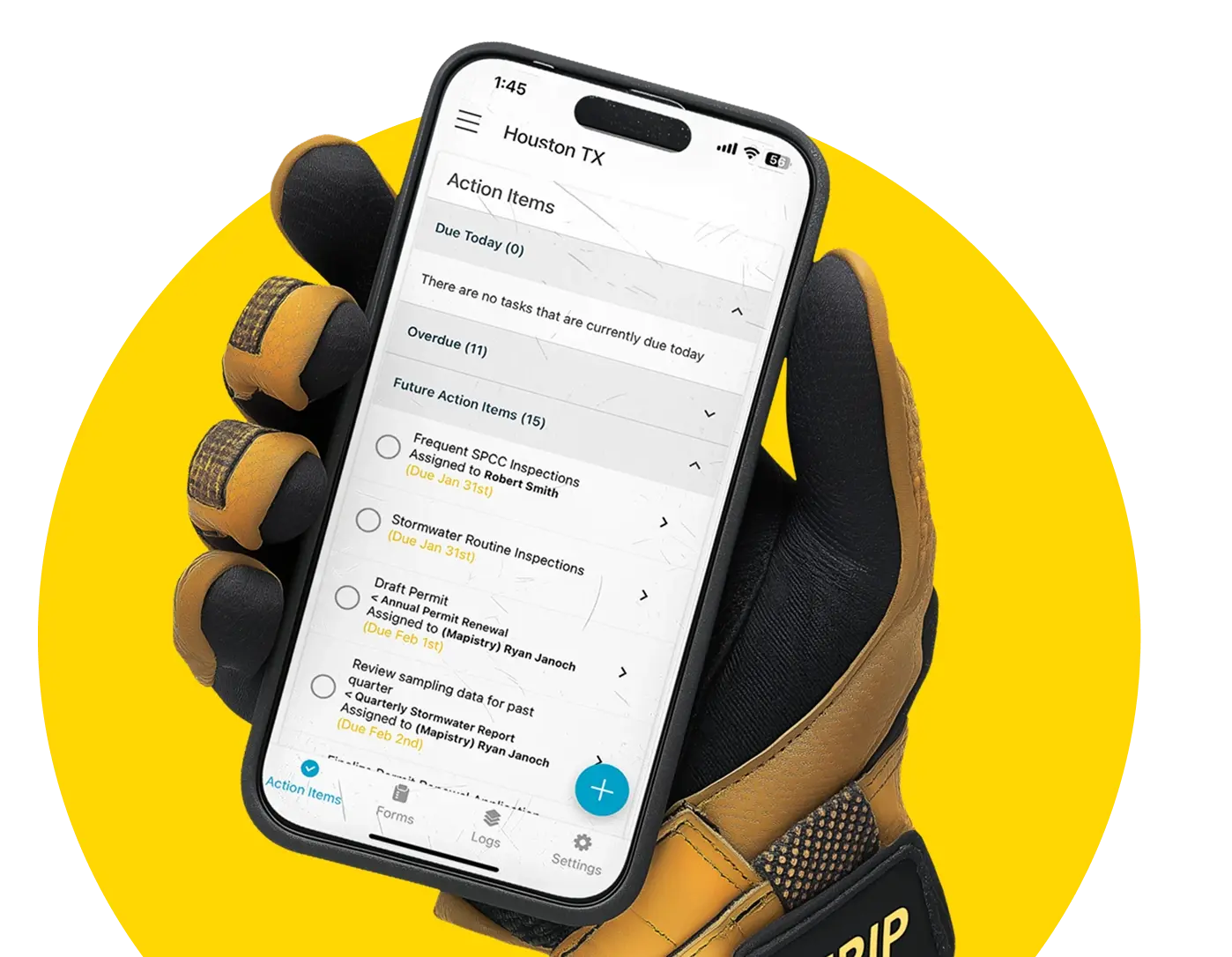Avoiding a Notice of Violation (NOV) of Your Stormwater Permit
For many facilities, there is a significant fear or concern over being inspected by a regulator. For some it is a fear of being caught, but for many it is the fear of the unknown. In California, the State Water Resources Control Board (SWRCB) writes the Industrial Stormwater General Permit (IGP) that governs industrial facilities’s stormwater discharges.
However, the administration and enforcement of the IGP is left up to the nine Regional Water Quality Control Boards (RWQCBs) across the state ( fact sheet). Last week, I sat down with Christine Boschen and Brian Thompson of the San Francisco Bay RWQCB (Region 2) to talk about industrial stormwater permit compliance. Christine is the head of the stormwater unit, overseeing RWQCB staff that inspect and assess compliance of companies and construction sites under the California stormwater Industrial General Permit (IGP) and Construction General Permit (CGP), respectively. Brian supervises the enforcement unit at the SF-RWQCB, which handles enforcement actions referred to his unit by Christine and her staff, following inspections and assessments. During a site inspection, a member of the RWQCB will typically arrive unannounced at your site and likely ask to take a tour of the site.
This is a good way for the inspector to
- understand the industrial processes that are occurring and
- see the entire site impacted by stormwater.
During the site walk, the inspector is going to be looking at Best Management Practices (BMPs) such as the sweeping program or inlet drain protection. Sites that have good BMPs, especially good housekeeping, are going to be scrutinized a lot less than sites that are messy or dis-organized.
For example, an inspector likely will ask to see a stormwater pollution prevention plans (SWPPPs) at most sites. However, inspection forms are typically reviewed in situations where the inspector has concerns about a facility’s stormwater program based on a visual assessment during the site walk, SWPPP review or water quality monitoring results.
Following an inspection, the inspector will either provide the facility with a written Notice of Violation or an email saying the program looks good. If a facility receives a NOV, which is considering an informal action, they should take steps immediately to address the deficiencies identified in the Notice of Violation. Typically, a NOV letter from the RWQCB is a template cover letter and the inspection report containing photos (parts of an example Notice of Violation are below).
First page of a NOV with the details of the inspection report attached

Inspection report identifying specific deficiencies found during the site walk For industrial sites that are particularly deficient, the stormwater unit may refer them to the enforcement division for additional investigation and potentially more formal enforcement action, usually with financial penalties, which are know as an Administrative Civil Liability (ACL). In addition to matters referred to the enforcement division from the inspection process, the enforcement division also handles non-filers and facilities that don’t file annual reports.
Non-filers are industrial facilities who are required to have coverage for their facility under the IGP (Notice of Intent [NOI]). Typically, a notice of non-compliance, which is via a letter that is sent to a facility notifying them of their non-filer status and the steps they must take to correct the problem. If a facility does not correct the problem, the enforcement division sends out a second notice 30 days after the first with a mandatory minimum penalty (MMP). This a financial penalty mandated by California law (Porter-Cologne Act). In summary, the ways the RWQCB enforces the IGP are:
- Inspections/assessments, which can lead to NOVs (no financial penalty)
- Enforcement actions, which can lead to ACLs (potential financial penalty)
Facilities should not ignore enforcement letters (Notices of Non-Compliance) and NOVs. Industrial facilities should take action immediately to correct outstanding deficiencies.
Want More? The RWQCB site has more details on the enforcement process, policies and definitions. In addition, you can see pending enforcement actions section on the SF-RWQCB website.


%201%20(2).png)

